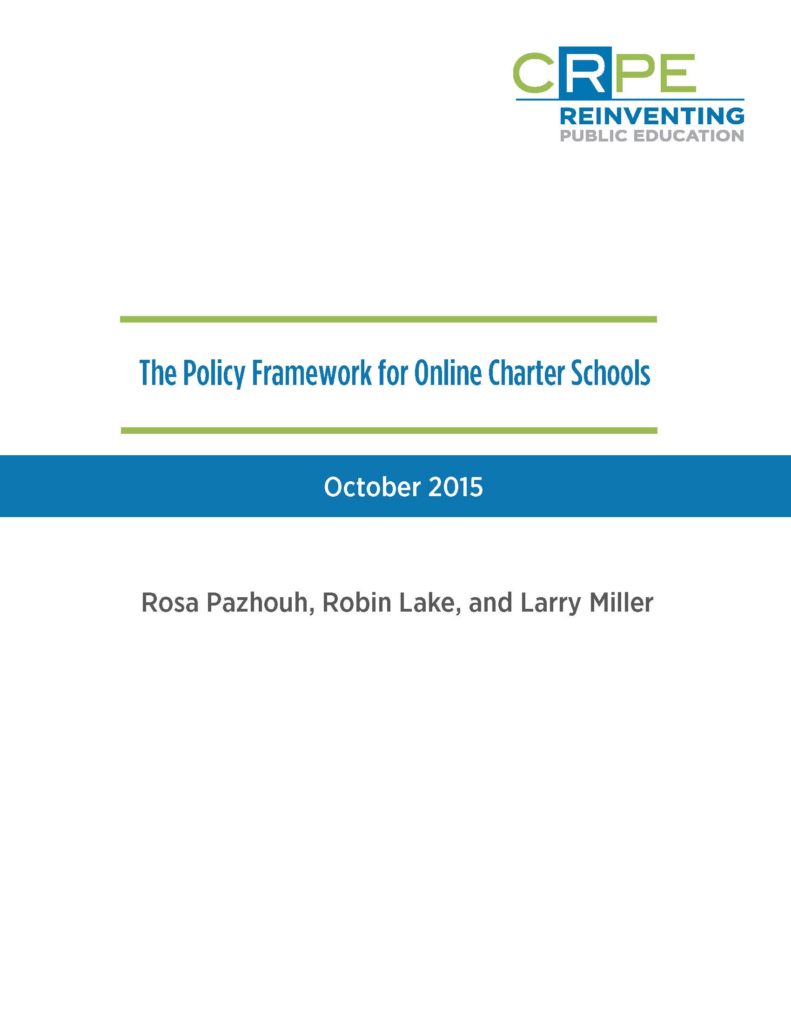The National Study of Online Charter Schools offers a rigorous analysis of the operations of online charter schools, their policy environments, and their impacts on student achievement. The research suggests that students of online charter schools had significantly weaker academic performance in math and reading, compared with their counterparts in conventional schools. Conducted by CRPE, Mathematica, and CREDO, the study is the most comprehensive examination of online charter schools to date, and is organized into separate, topical reports. CRPE conducted an extensive examination of how state policy shapes the online charter school landscape. Researchers found that online charter schools exist in a number of different policy environments due to variation in state charter law and administrative regulation. Most of the existing regulation is reactive to controversy (restrictions on growth and autonomy), rather than proactive policies to guide the unique opportunities and challenges of online charter schools. The authors found several drawbacks to forcing online schools into the charter context, including:
- Open admission requirements that prevent schools from screening for students who are most likely to be successful in an online school.
- Authorizing and accountability provisions that are not well suited to the unique challenges of regulating online schools.
- Funding mechanisms that preclude outcomes-based funding.
The authors call for policies that address legitimate concerns without needlessly restricting growth, and recommend that policymakers consider moving online schools out of the charter context, or craft unique provisions specific to online charters. Read the partner studies: Inside Online Charter Schools, by Mathematica Policy Research Online Charter School Study, by CREDO at Stanford University





